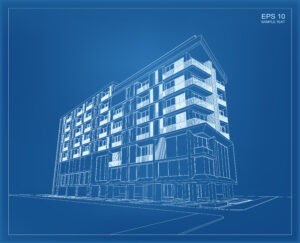In an era when non-traditional is the new tradition, we can look to the telecommunications industry as one of the last technologies to move to new generation solutions. In the hospitality sector specifically, voice communication is the final frontier in moving to a data-centric architecture.
Hotels are not a new thing
The hospitality industry does not generally lag behind, even as one of the oldest business sectors dating back to the Greek and Roman Empire in 40 B.C. Romans were the first recorded business travelers and their citizens were the first leisure travelers, marking the beginning of the hospitality industry. For an industry that is older than Methuselah, hoteliers have been slow to embrace next generation voice technology. Why is that?
PBX, the thing hotels most relied on
Within the hospitality industry, one can say we have witnessed the rise and fall of the Private Branch Exchange (PBX). In the not so distant past, the PBX was a profit center for hotels. Travelers relied on the PBX to provide them with a lifeline to the world during their travels and hotels were happy to provide it to them, at a premium. Fast forward to the 21st century where technology has taken one giant leap and continues to evolve at lightning speed. In less than a decade, the revered guest room phone became a glorified intercom. The illustrious PBX’s that once served hotels for decades, with lots of bells and whistles, complex call accounting systems, and a staff dedicated to supporting them, was on its way to obsolescence.
Manufacturers had to respond to diminished guest room usage and find a way to stay relevant in a business sector that matured past them very quickly.
Hoteliers are now looking for economical exit strategies for their legacy voice systems and ways to greatly reduce the total cost of ownership (TCO) for voice implementations and long-term service and support.
In today’s world, many hoteliers are viewing the in-room guest phone as a necessity for life safety/emergency dialing purposes. One new technology gaining recent notice is above- property communications for the hospitality industry.
Cloud-based/unified communications present several opportunities

Like running water, voice has to be instantaneous, clear, mobile, and always available, and at a cost that hotel owners and operators are willing to fund with an expected neutral or negative return on investment (ROI).
Quality, flexibility, and reliability are necessary voice qualities that generations have come to know and expect. In addition, added features on cell phones/smart phones such as HD call quality indicate that the superiority of cell phones compared to land lines is imminent.
Hybrid vs. fully hosted solutions differ in the following ways: switching and call routing still exists on premises in coordination with cloud-based switching and routing.
Next generation voice technology must offer high quality, reliable, and secure voice communications with the latest hotel voice features and integrations.
Advantages of moving the PBX to the cloud
- Less equipment to purchase – reducing upfront capital expenditure and enabling quicker installations.
- Less maintenance and centralized managed support – reducing long-term operating expenses.
- Sustainable and reliable reliability, including life safety.
- Departure from proprietary components that lock hoteliers to a specific phone system manufacturer – Session Initiation Protocol (SIP) compliant standards-based components are used, enabling swift carrier change(s).
- Employ green technology to significantly reduce energy consumption and lower carbon footprint.
- Simplified management tools – reducing long-term maintenance costs.
- Integration into hotelier applications (loyalty systems, CRM, etc.)/infrastructure and services otherwise not possible on a broad scale with legacy premise-based PBX systems.
- Enable global upgrades/changes to respond to legal and business needs – this could include regulatory changes such as emergency dialing patterns. Additionally, upgrades are often security related and will ensure that the PBX system is always up to date.
- Softphone and mobile device capabilities.
- Accounts for life safety concerns and emergency services notification – including Private Switch/Automatic Location Identification Service (PS-Ali) for U.S. customers.
